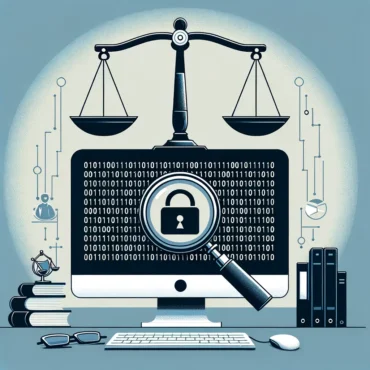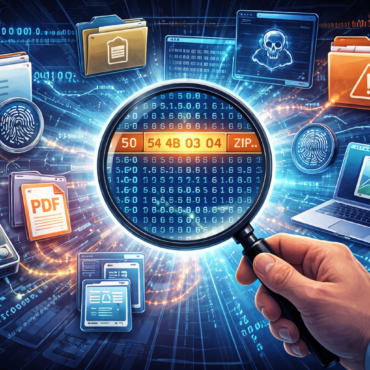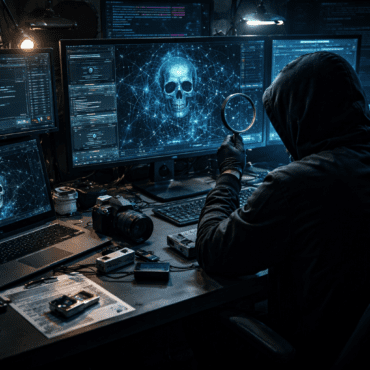
Protecting Digital Evidence from Tampering and Corruption
Introduction In today’s digital era, almost every crime leaves behind a digital trail — be it in the form of emails, mobile data, CCTV footage, or online activity logs. Forensic ...


Digital Forensics Ayushi Agrawal todayOctober 27, 2025

In today’s rapidly evolving digital landscape, crimes committed using technology are on the rise. From cyber fraud and hacking to data breaches and identity theft, the demand for professionals who can investigate, analyze, and interpret digital evidence has never been higher. This is where Digital Forensics steps in, bridging the gap between technology and justice.
However, having just theoretical knowledge isn’t enough. To truly excel in this domain, professional certifications play a crucial role. Certifications not only validate your skills but also help you stand out in a competitive job market. Let’s explore why certifications are essential for career growth in the field of digital forensics.
Digital forensics is a highly technical domain that demands both theoretical understanding and practical proficiency. Employers and law enforcement agencies seek professionals who can handle digital evidence with precision, use advanced forensic tools, and maintain legal admissibility in court.
Certifications such as:
CHFI (Computer Hacking Forensic Investigator) by EC-Council
CDFE (Certified Digital Forensics Examiner) by Mile2
ACE (AccessData Certified Examiner)
EnCE (EnCase Certified Examiner)
GCFA (GIAC Certified Forensic Analyst)
Demonstrate that you have verified and standardized expertise. These globally recognized certifications act as proof that you can perform digital investigations at a professional level.
In forensic investigations, credibility is everything. Courts, clients, and organizations must trust the examiner’s competence and ethical integrity. Holding a recognized certification signals that you adhere to international forensic standards and codes of conduct.
For instance, a certified CHFI or CDFE examiner is viewed as a credible expert witness in legal proceedings. Certifications help you establish your authority, which is vital when testifying in court or handling sensitive digital evidence.
Organizations prefer certified professionals because they reduce the risk of error in investigations and ensure compliance with legal frameworks. Many job postings in digital forensics, incident response, or cybersecurity list certifications like CHFI, CEH, or GCFA as “required” or “preferred qualifications.”
Some roles that value certified professionals include:
Digital Forensic Analyst
Cybercrime Investigator
Incident Response Specialist
SOC Analyst
Malware Forensic Expert
eDiscovery Specialist
A certified professional not only gains a competitive edge during hiring but also enjoys a higher earning potential. According to market reports, certified forensic analysts can earn 25–40% more than their non-certified counterparts.
Digital forensics is a field that changes continuously with advancements in technology. New devices, file systems, encryption methods, and cloud environments appear every year, demanding constant learning.
Certifications require you to stay current with:
The latest forensic tools like FTK, EnCase, X-Ways, and Magnet AXIOM
Modern data recovery techniques
Cloud and mobile forensics
Legal frameworks related to digital evidence
By pursuing certifications, you stay ahead of the curve and remain relevant in a dynamic field.
Unlike theoretical education, certification programs are practical and tool-oriented. For example:
The CHFI course includes hands-on training on real forensic cases, covering imaging, evidence recovery, and analysis.
CDFE emphasises investigative methodologies, chain of custody, and reporting procedures.
At institutes like Hawk Eye Forensic, certified training programs are conducted using advanced forensic tools and lab environments, ensuring real-world exposure. This hands-on practice helps you confidently handle digital evidence, which is critical during live investigations.
Certified digital forensic professionals can work across borders. Many certifications, such as those by EC-Council, Mile2, and GIAC, are internationally recognized. This means your credentials are valid whether you work in India, the U.S., or Europe.
Such global acceptance provides flexibility for professionals seeking international career opportunities or working with multinational investigative agencies.
Many cybersecurity professionals wish to specialize in digital forensics. Certifications serve as an excellent bridge between cybersecurity and forensics. If you already hold certifications like CEH (Certified Ethical Hacker) or CSA (Certified SOC Analyst), pursuing CHFI or CDFE adds a strong forensic dimension to your skill set, making you valuable for both preventive (cyber defense) and investigative (forensic) roles.
Certifications make your resume stand out during job applications, especially for government tenders, law enforcement contracts, or corporate forensic assignments. Recruiters and clients instantly recognise certified professionals as trained experts.
On platforms like LinkedIn, showcasing certifications increases your professional visibility and credibility among peers, recruiters, and forensic communities.
Digital forensic investigations often end up in court. Evidence extracted from devices must be admissible, and procedures must comply with legal standards such as:
Chain of custody maintenance
Non-tampering of original data
Proper documentation and reporting
Certified professionals are trained to follow these international guidelines, ensuring that their findings hold up under judicial scrutiny. This legal reliability adds immense value to your career as a forensic expert.
Once certified and experienced, professionals can move beyond investigation roles into consultancy, teaching, or leadership positions. Many certified forensic analysts become:
Forensic consultants for law enforcement
Trainers or educators at forensic institutions
Founders of digital forensic labs or firms
Certifications help you establish your expertise to guide others and build your own brand in the forensic ecosystem.
In digital forensics, where every byte of data can make or break a case, expertise and credibility matter the most. Certifications are not just an add-on—they are a necessity for anyone aspiring to grow and succeed in this specialized field.
They validate your knowledge, enhance your career prospects, and keep you updated with the latest trends and tools in digital investigations. Whether you are a beginner or an experienced analyst, pursuing certifications like CHFI, CDFE, or CEH is a strategic investment in your professional future.
If you’re ready to take the next step in your forensic career, Hawk Eye Forensic, an Accredited Training Center (ATC) for five consecutive years, offers globally recognized certification training with practical, hands-on learning guided by industry experts.
Written by: Ayushi Agrawal
Tagged as: Hawk Eye Forensic, DigitalForensics, Cyber Forensics, Forensic Training, CDFE, Career Growth, Cyber Security.

Blog Ayushi Agrawal
Introduction In today’s digital era, almost every crime leaves behind a digital trail — be it in the form of emails, mobile data, CCTV footage, or online activity logs. Forensic ...


Copyright 2016-2025 all rights reserved by Hawk Eye Forensic.
Post comments (0)